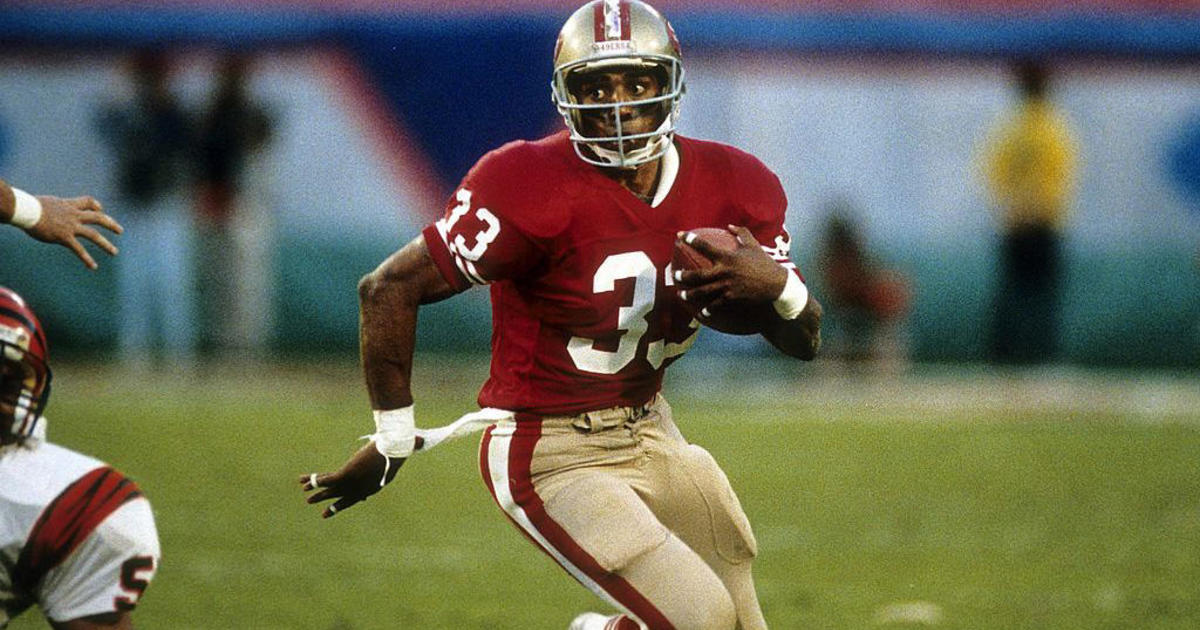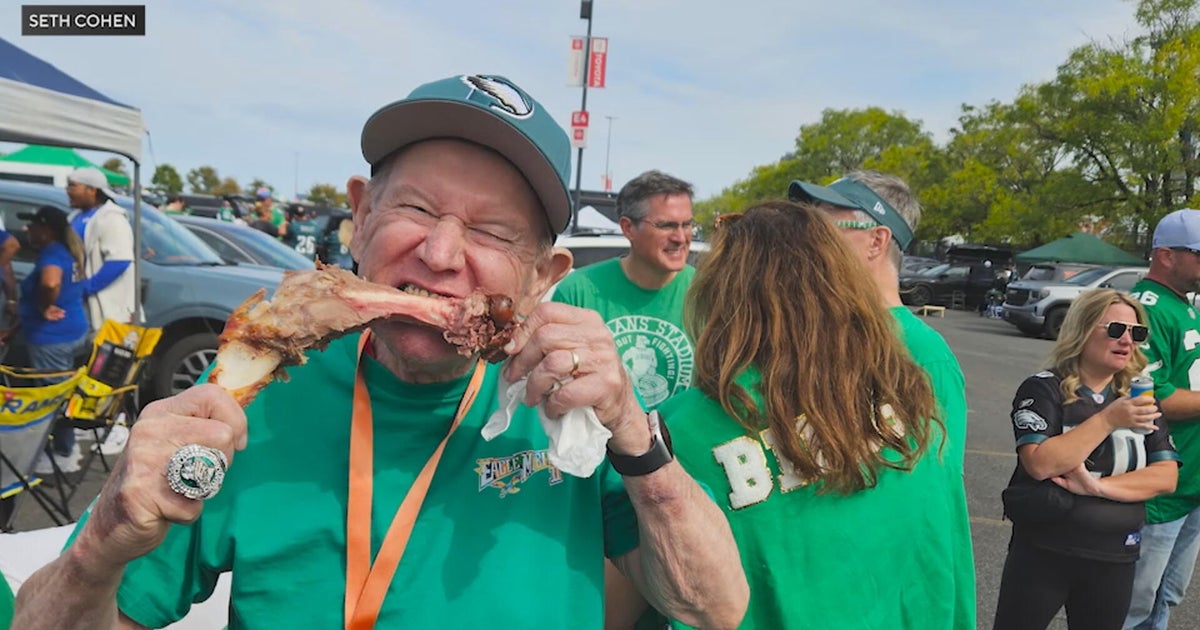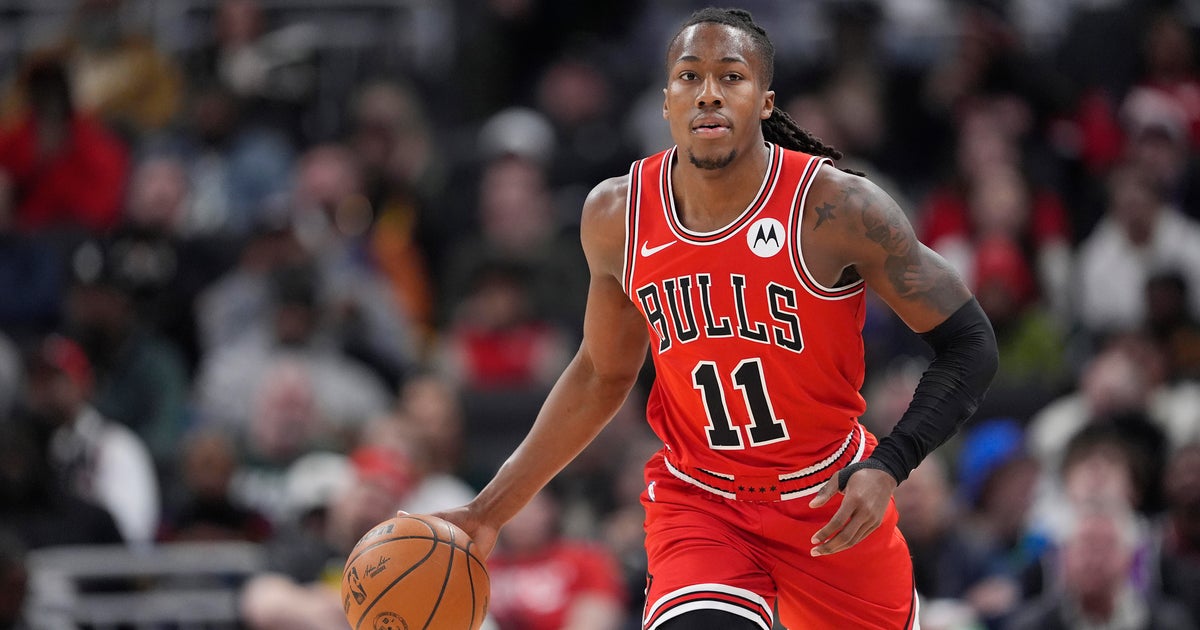Durkin: Defiant Marshall Opens Up
By Dan Durkin-
(CBS) The NFL's grip on the consciousness of American sports fans is iron clad.
No other professional sporting league satisfies entertainment seeker's predilection for instant gratification sprinkled with a touch of bloodlust better than the NFL.
In-game strategies are chess-like. Teams make short-term sacrifices in hopes that they will create benefits in the end. Interplayed with the thinking-man aspect is an inherent element of violence. It's a league filled with genetic exceptions who perform athletic feats at breakneck speeds and endure massive collisions, only to get up and do it again for our amusement.
However, just as lines are drawn on the field, they are drawn off it as well.
The past two weeks have been the darkest in NFL history. From Ray Rice to Greg Hardy to Adrian Peterson to Jonathan Dwyer, the details and visuals of domestic violence and child abuse are out there for all to see and judge.
Brandon Marshall was once in their shoes, creating headlines not only for his on-field prowess but also his off-field behavior.
Marshall's athletic gifts help fill stadiums and his words fill media rooms. On Thursday, it was a standing room-only crowd at Halas Hall. Media outlets from across the country descended to be in the moment, for when Marshall is behind a microphone or in front of a camera, you're never quite sure what you're going to get, but it's certain to be filled with raw emotion.
Marshall recently took to Twitter to respond to a recent episode of E:60 that brought back to light a dark chapter of his life, when he was repeatedly accused of domestic violence and had multiple run-ins with police (he's never been convicted but did serve a suspension in 2008 for his actions). Marshall claimed to not only be under a different impression about the purpose of the program in general, but he felt their portrayal of his checkered past was one-sided and sensationalized to take advantage of the current climate of the league.
On Thursday, Marshall took the podium. Public speaking has become a form of therapy for Marshall; it seems to be cleansing for him. He ran a gamut of emotions and espoused on a variety of topics ranging from his unstable upbringing to feeling exploited by ESPN to his newfound role as a possible example of positive rehabilitation for troubled colleagues.
As a direct observer, I also felt a range of emotional responses, teetering between empathy and confusion. At times, it felt like I was a juror in a courtroom, thumbing through discoverable materials as I heard testimony from both the prosecution and the defense.
Since arriving in Chicago, Marshall has been outspoken about his struggles, his triggers and the steps he's taking on his journey to transform himself. Marshall believes that his profession is truly just a platform for his purpose in life, which is bringing honest and open conversations to mental health awareness.
In February at the Super Bowl, Marshall approached embattled NFL commissioner Roger Goodell -- who may not be long for his job -- about using the NFL to push his cause. The two finally sat down this summer and by the end of their conversation, the tables had turned. According to Marshall, a tearful Goodell lobbied Marshall for ideas and suggestions on how the NFL can deal with its social issues, asking, "What is the call to action?"
It's safe to assume that this is an atypical question for Goodell to ask players in closed-door meetings, but it also speaks to the change in perception of Marshall the person. He's gone from being a problem child to a feel-good story, but it's not up to Marshall to lay out a tangible plan for the league.
Certainly, Marshall has lived some dark days in his life, after which he's made a concerted effort to enact positive changes in his life. In turn, he's gained the trust of his teammates and the organization. He didn't turn to the league for help, nor does he think it's the league's place to.
"It's not the NFL's job to raise men," Marshall said. "We're kidding ourselves if we think it's the NFL's job to take boys from college and raise them to men. It (domestic violence) is a problem in our marriages, a problem in our communities, a problem in the way we coach children and parenting -- that's where it starts. It doesn't start with the NFL, it doesn't start with the government, it starts at home."
Dan Durkin covers the Bears for CBSChicago.com and is a frequent contributor to 670 The Score. Follow him on Twitter at @djdurkin.







